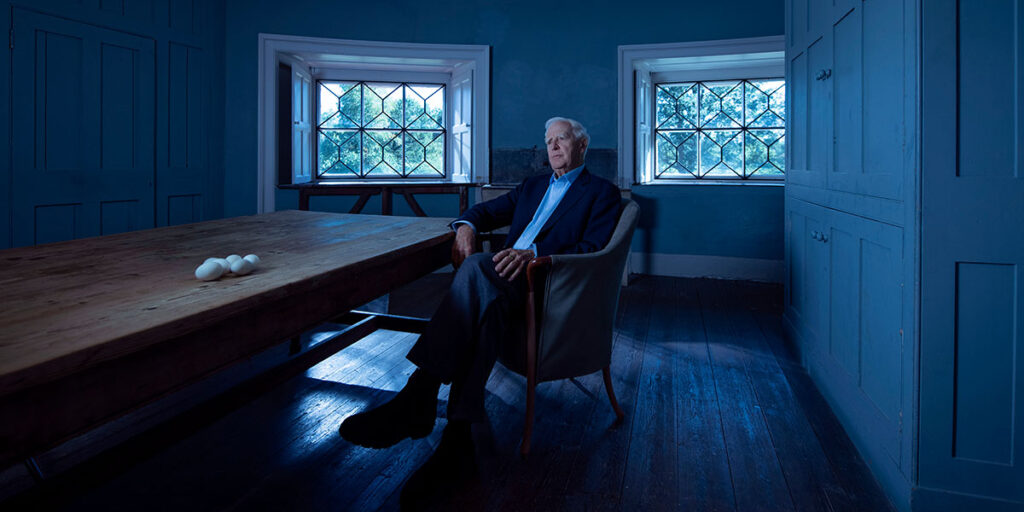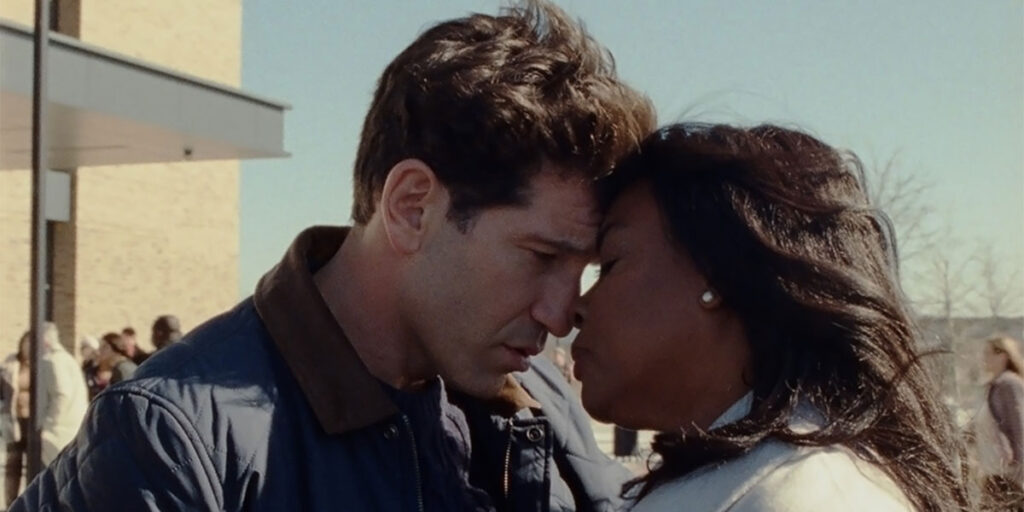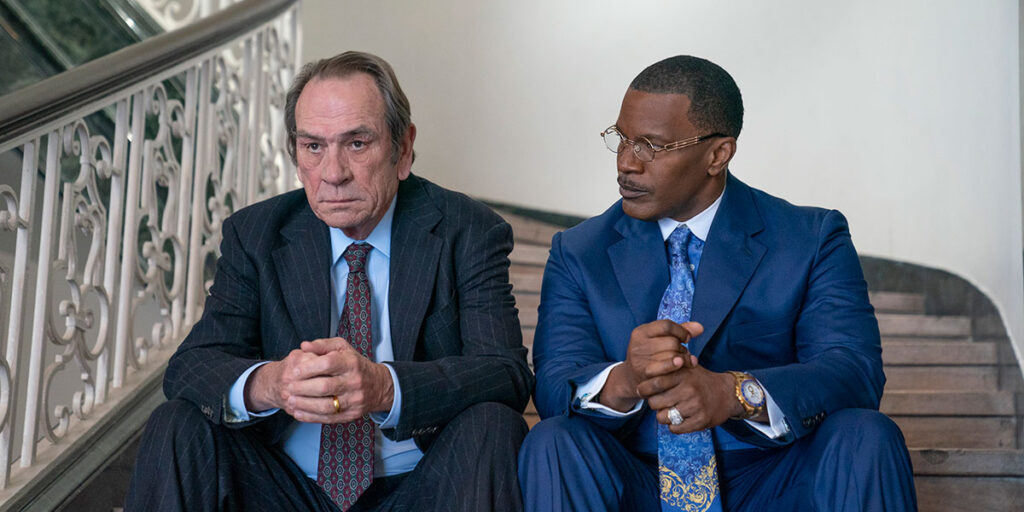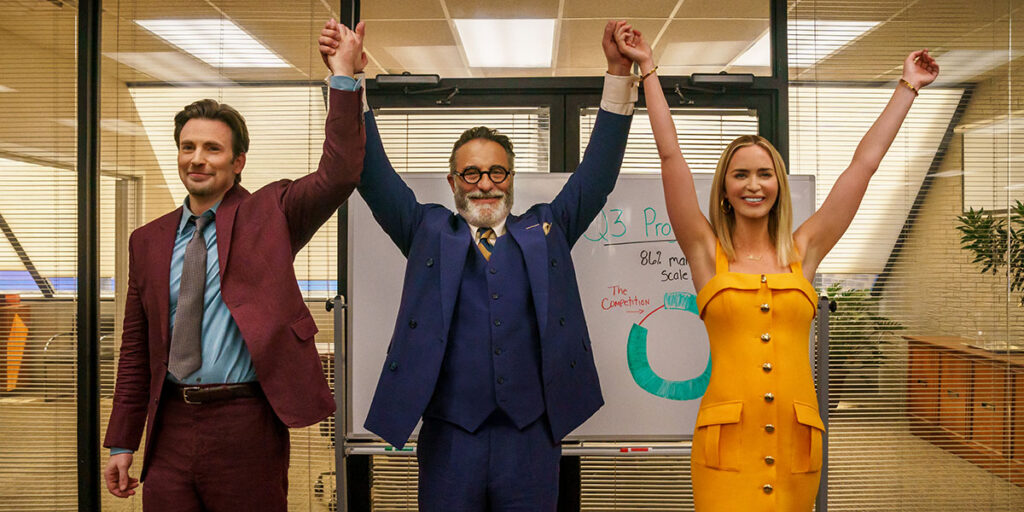The latest batch of reactions and brief reviews of films throughout the rest of the Toronto International Film Festival.

The Pigeon Tunnel (2023 | United Kingdom | 94 minutes | Errol Morris)
Two master storytellers — John Le Carre and Errol Morris — sat down for an “interrogation” before the great spy novelist’s death in 2020. Their lively conversation hovers on the quivering membrane between an excavation of personal history and the construction of a myth. Ditching his usual Interrotron camera, Morris instead pushes Le Carre to the edge of the frame as he recounts his tumultuous youth being raised by a single perpetually indebted father, time in the foreign service during the Cold War, and relating how his life has infused his fiction.
A companion Le Carre’s memoir, the title refers to pigeons whose ancestral roosts lie above a chute through why they’re released as targets for sport shooters, with the survivors perpetually returning to the roost. It’s unsurprisingly a potent metaphor for both the author and the characters who populate his novels. Never content with a simple talking head documentary, Morris illustrates stories with reenactments, clips from films inspired from his books, and sometimes imppossible visual collages, naturally heavy on the bird metaphors. As the men’s genial yet probing interchange approaches the pinnacle of a life and a career, it’s a complete pleasure and a visual delight to spend time in their rare company.
The Pigeon Tunnel had its international premiere at TIFF

Origin (2023 | USA | 130 minutes | Ava DuVernay)
Ava DuVernay takes on A Whole Lot in attempting to transmute Pulitzer Prize winning journalist Isabel Wilkerson’s provocative nonfiction book Caste: the Origins of Our Discontents to the screen. Rather than directly illustrate the themes (or “pillars”) of her contextualization of American racism as merely a recent piece of millennia of caste-based segregation and dehumanizing enforcement of systems of power (a heavy lift), she amplifies the degree of difficulty by integrating a human angle.
Aunjanue Ellis-Taylor plays the author, often to strong effect, as she’s summoned into the national dialogue in the wake of Trayvon Martin’s killing. The film is rocky at times but her masterful performance is the stabilizing force that makes any of it work. Audio and recreation of the heartbreaking murder is depicted in the film’s opening as the motivating incident and as an underlying theme that recurs throughout. Compounding the trauma, Wilkerson experiences two personal tragedies in short succession, setting her emotionally adrift while also sharpening her resolve to dive back into writing.
Showing a journalist at work and making it compelling rather than cringy is always a tall task. DuVernay is most successful with the emotional moments, Ellis-Taylor’s time with Jon Bernthal as her onscreen husband sparkles, as do her evocations of abstracted grief. Less convincing are the stops on her Eat, Pray, Love expedition around the world to study topics in caste-based violence like the Holocaust in Germany and the Dalit in India. Du Vernay seems unsure that her audience will recognize her protagonist’s expertise and insight. Her most frequent tactic to convince us is to having other experts marvel at just how important a voice she is or to have ordinary civilians look on with bafflement as she explains her thesis, often begging her to speak to them in terms that their simple-minds can understand. At the same time, she’s often seemingly astounded to have discovered well-known historical facts explained to her by other experts so that she can eagerly jot these observations into her notebook.
I don’t envy the task of turning the long, complex, and recursive process of writing a book, let alone such a vast philosophical and historical argument into two hours of film. To be sure, there are episodes throughout — in Wilkinson’s life and in the historical record she unearths — that demonstrate the strength of DuVernay’s image-making. One scene, reflecting on a seemingly small act of institutional racism and futile resistance, toward the end of the film is heartbreaking and leaves you wishing the whole film had been given more room to breathe. In this way, it’s one of the more frustrating and thought-provoking misfires of the festival. Much of the image-making is astonishing and the performances are strong. Although the fusion of academic and melodramatic doesn’t always work, but the parts that do will really get under the skin.
Origin had its North American premiere at TIFF

The Burial (2023 | USA | 126 minutes | Maggie Betts)
One of the many celebrity-driven “based on a true story” films to dominate this year’s festival, Tommy Lee Jones and Jamie Foxx make this tall tale of a small businessman vs. Big Funeral watchable. Jones is a seventy-five-year old funeral parlor operator from Mississippi on the verge of retirement, but he’d like to get his finances in order before handing down his little slice of the death industry to his sprawling family. When a deal with a Canadian conglomerate goes sour, his young up-and-coming lawyer recommends bringing on a flashy personal injury attorney played with scene-chewing aplomb by Foxx.
It’s a fun showcase for these actors to cook, whether it be folksy aw-shucksisms or ostentatious confidence, all while learning something new about themselves and others. With some laughs and sentimental moments along the way, the film barely justifies its existence as long as you never stop to think about why any of this is happening. Although the broad outlines may be ripped from the headlines, it feels like any semblance of coherence from the real life legal case was lost in translation.
The Burial had its world premiere at TIFF

Pain Hustlers (2023 | USA | 122 minutes | David Yates)
Who but Emily Blunt could make us even consider siding with a narcotics-pushing drug rep whose rise to wealth was predicated on convincing doctors of questionable qualifications and ethics to prescribe their patients an under-the-tongue spray for breakthrough cancer pain? David Yates casts her as perpetually unemployed single mother whose chance meeting with a sleazy biotech startup bro (a pretty canny Chris Evans) in a strip club launched her into a lucrative career on the ground floor of the opioid epidemic (back when fentanyl lollipops were the coin of the realm).
Shot, perplexingly, in pseudo-documentary style, the film nevertheless moves at a zippy pace through the rise and fall of what’s now a mere footnote in a several decades-long empire of human misery caused by corporate greed that preys on addiction. Aside from Blunt’s charisma, we fall for her hard-luck character who means well in escaping poverty by way of pharma, in large part because she’s an invention of Wells Tower’s adaptation of Evan Hughes’s 2022 book about the big, awful, money-hungry machine of pharmaceutical painkillers. Catherine O’Hara is predictably funny as her imperfect mother; Andy Garcia has some ridiculous moments as a billionaire founder. By sacrificing hard details for laughs, emotional beats, and an easily digestible story it doesn’t ascend to great heights but makes for a satisfyingly outrageous watch.
Pain Hustlers had its world premiere at TIFF; it is one of many at the festival that will be released by Netflix.
This piece was written during the 2023 SAG-AFTRA strike. Without the labor of the actors currently on strike, the film being covered here wouldn’t exist. More information about the strikes can be found on the SAG-AFTRA Strike hubs. Donations to support striking workers can be made at the Entertainment Community Fund.




